alignment
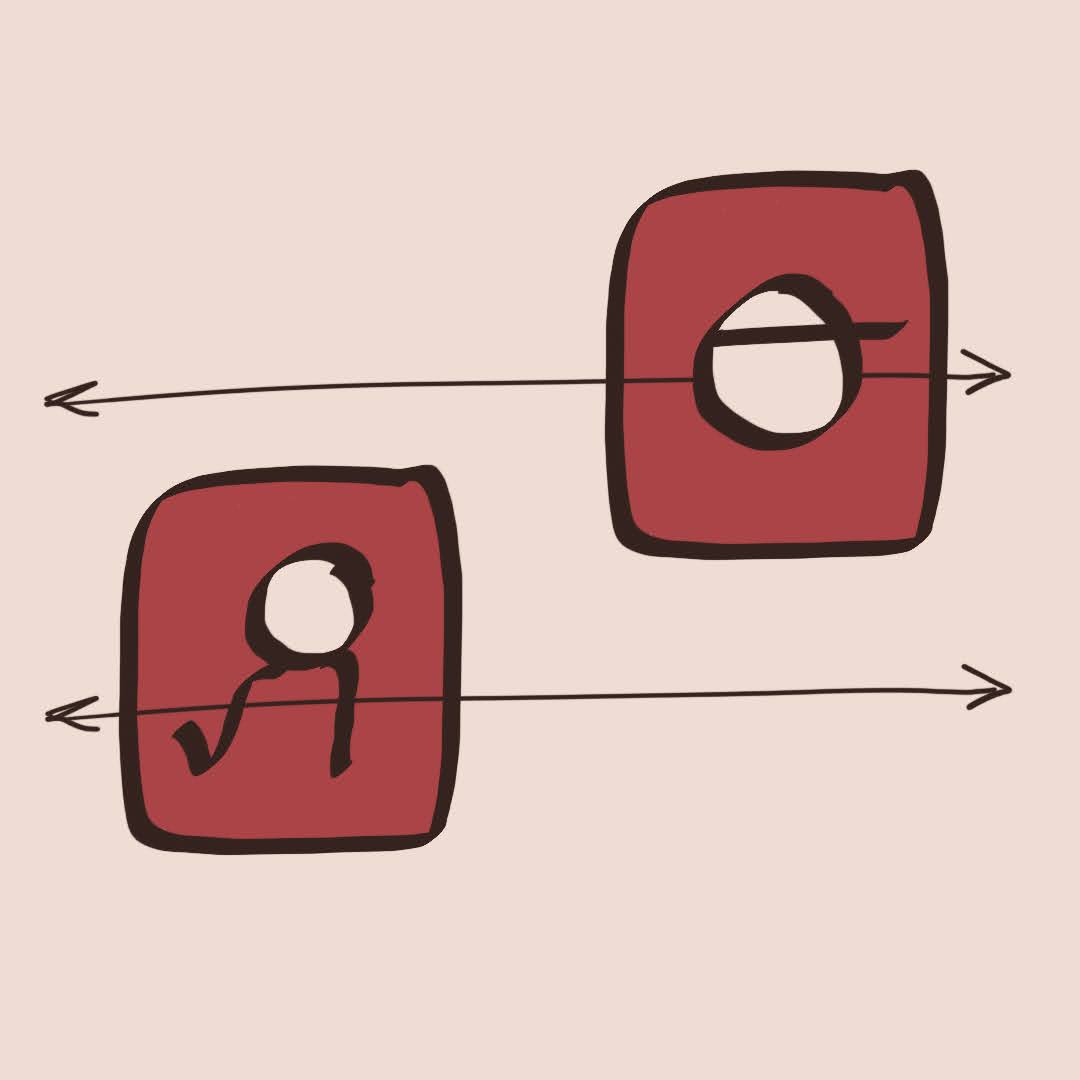
This year, I studied morality with one of my campus clubs. The discussions were long and esoteric, but I came out the other end with a much clearer picture of life. What does it mean to live in a world where “right” and “wrong” are of the utmost importance, but how to distinguish between them is an adventure that takes more than a lifetime to figure out? What does it mean when we believe one thing, but act as if we believe another? Is it ever possible to do a truly “good” action? Is it possible to have truly “good” beliefs?
definitions
You probably already have a definition for “morality” but in this post, I'll use these terms precisely as defined here:
Morality (noun): a system of beliefs about what is right and wrong
Moral (adjective): describes actions taken by an individual that are aligned with their morality
These terms are often used interchangeably, or with entirely different meanings, but take careful note: in this post, morality is all about beliefs. To live morally is to live in right relationship with yourself.
Again, this is not the only definition of the words. It's not even the best definition of the words. But it is the definition of the words that I use in this post.
what i learned
I drew some pictures to help me solidify these concepts.
Here's your morality, it's all in your brain:
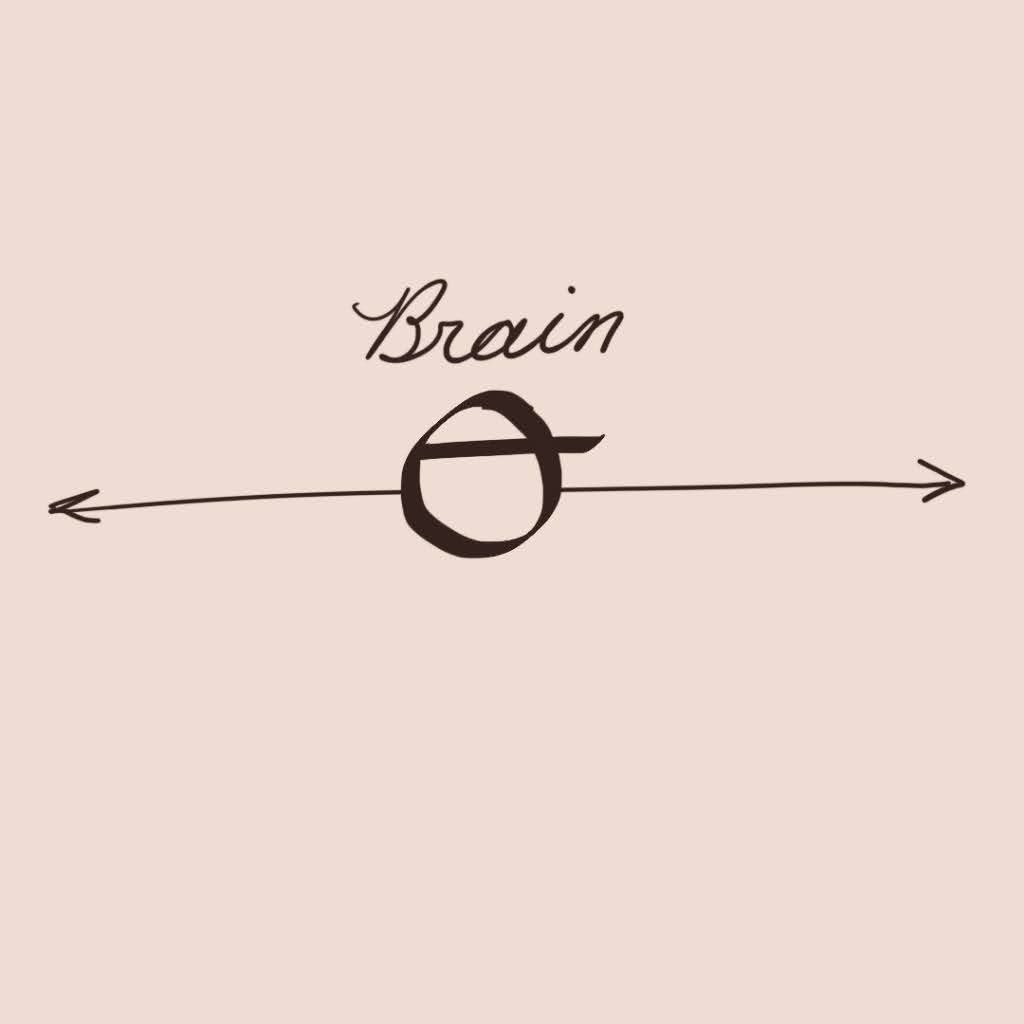
I put it on a sliding scale to show that your morality can move and change. When I was young, my morality consisted mostly of “if my brother gets a gift, I should get one too.” It's shifted enormously away from that to include things like, “one should not cheat on exams” and, “using the appropriate turn signal before changing lanes is good and right.”
Saying that your morality grows and changes doesn't imply moral relativism. It means that as a person grows, moves through different life experiences, and studies, that person will come to different understandings about what is right and wrong for particular situations or for particular categories of situations. Under this model, nobody's born knowing what's right and wrong. We have to learn through teaching or experience.
That ability to learn, grow, and change is a two-edged sword. Your brain can come to believe anything! Some people believe that children should learn five languages before the age of ten. Others believe that cheerios are the best breakfast cereal. These are the beliefs that shape a person's morality.
Next comes your actions:
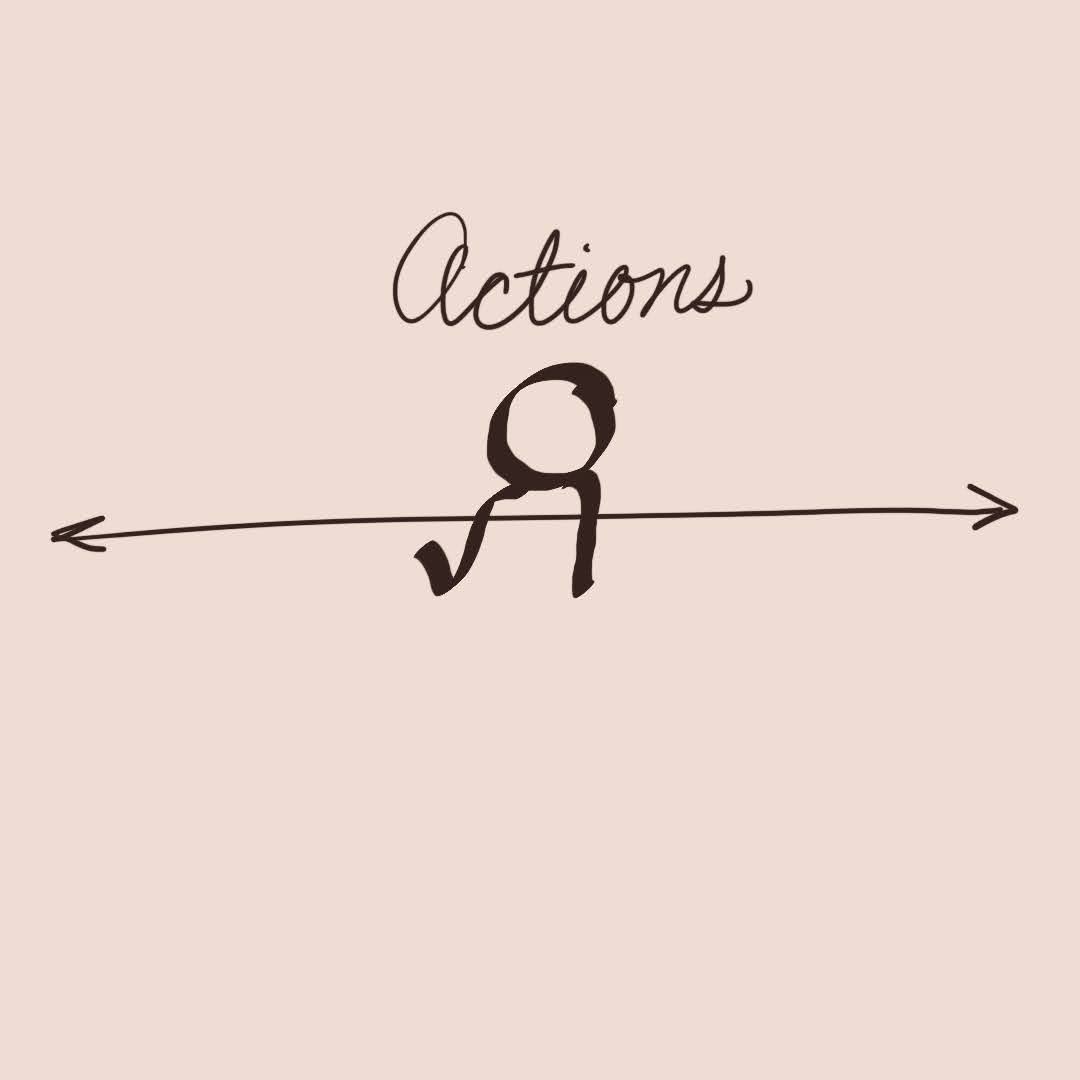
This is what you actually do. In the same way that you can believe anything, you can also do anything, and that's where the conversation gets fun!
Here's the scale with both your brain and your actions:
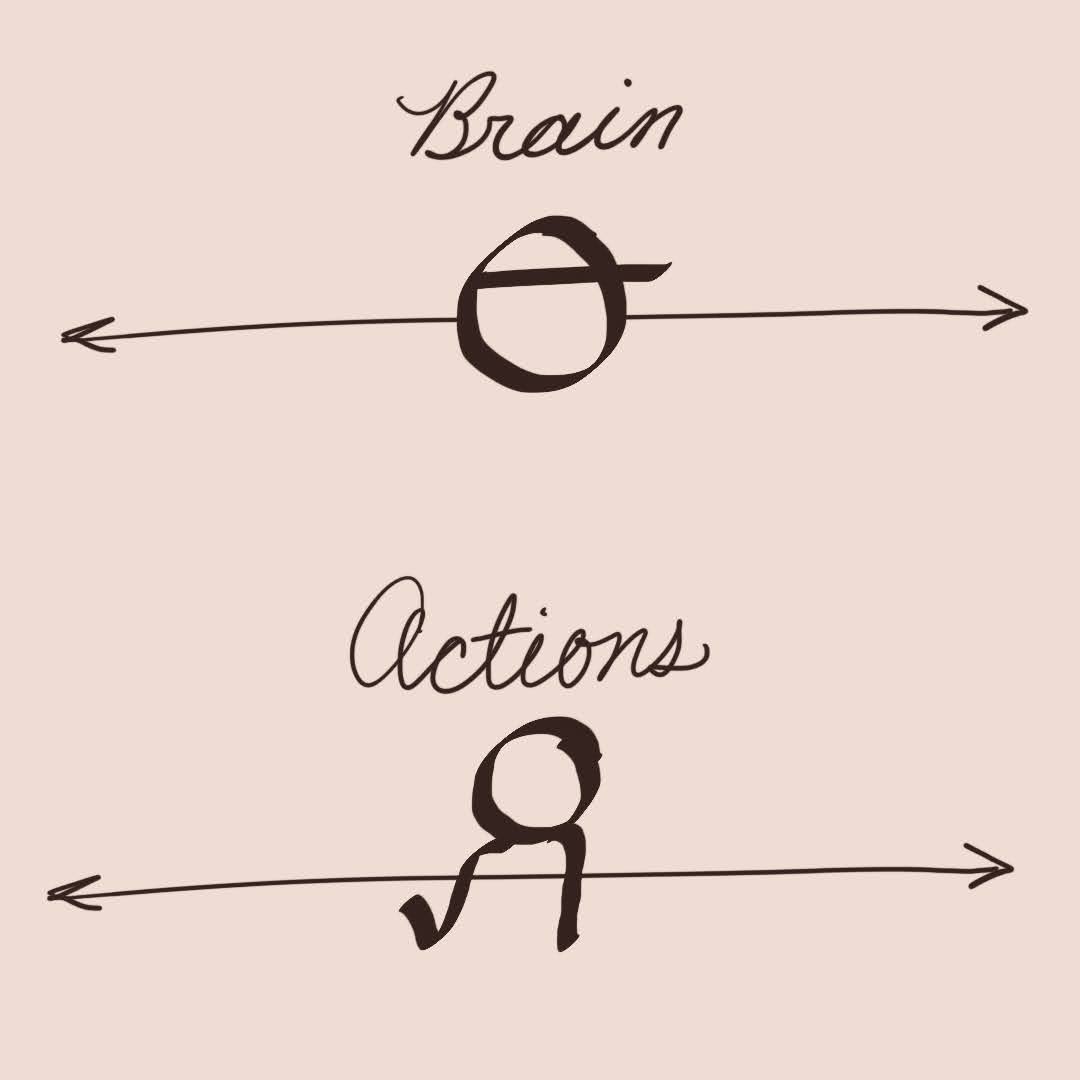
Notice how they're on different levels? That's because your actions and your beliefs can move in opposite directions.
I truly believe (in my brain) that it's good to exercise every day. In practice, however, I'm doing well to exercise once a week!
In that particular case, my beliefs and actions are not in line:
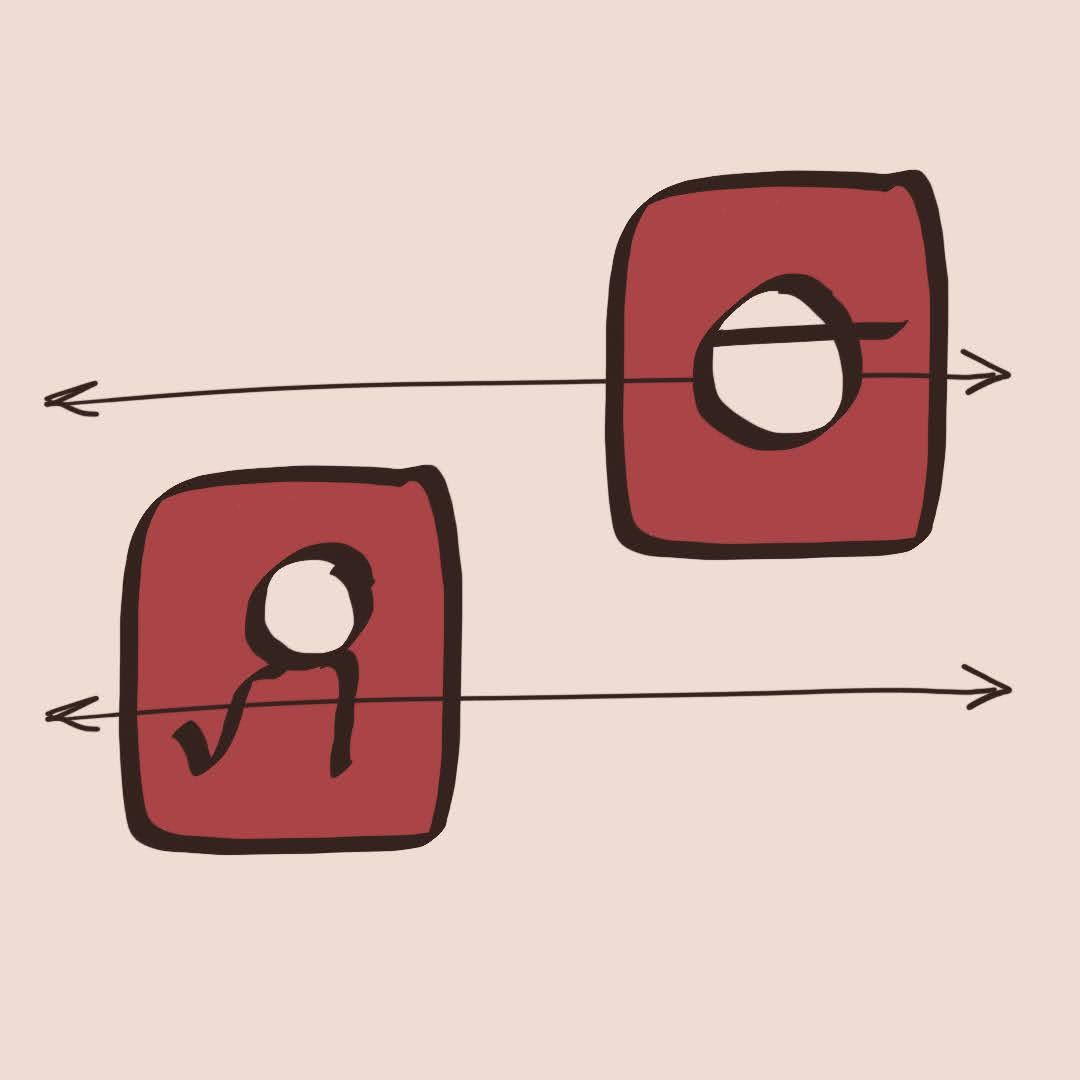
When your beliefs and actions are not in line, your actions are not “moral.” I was shocked to read this (paraphrased) quote from my Christian moral philosophy book:
It is always right to follow your conscience, even if your conscience is in error.
- Mattison, Moral Theology
The special thing about your conscience is that it is always representative of your most deeply held beliefs. In any given moment, to go against your conscience is to go against what you truly believe to be right and true. This is very possible (I do it all the time!), but it is a miserable way to live.
I'll say it again: regardless of all else, when your beliefs and actions do not line up, you are not living morally. You will be unhappy. You will not be able to flourish. And, more likely than not, you will begin to experience the symptoms of a misaligned life: shame, feeling like an imposter, the desire to lie, anxiety, lack of executive function, losing grip on reality, attempting to rationalize actions you believe are wrong, and self-deception.
The only thing that makes your actions “moral” or “amoral” (in this particular model of morality) is whether they align with what you believe to be true. In this case, the state of living morally is to live in line with what you believe to be true.
Now, here's the other possible situation, in picture form:
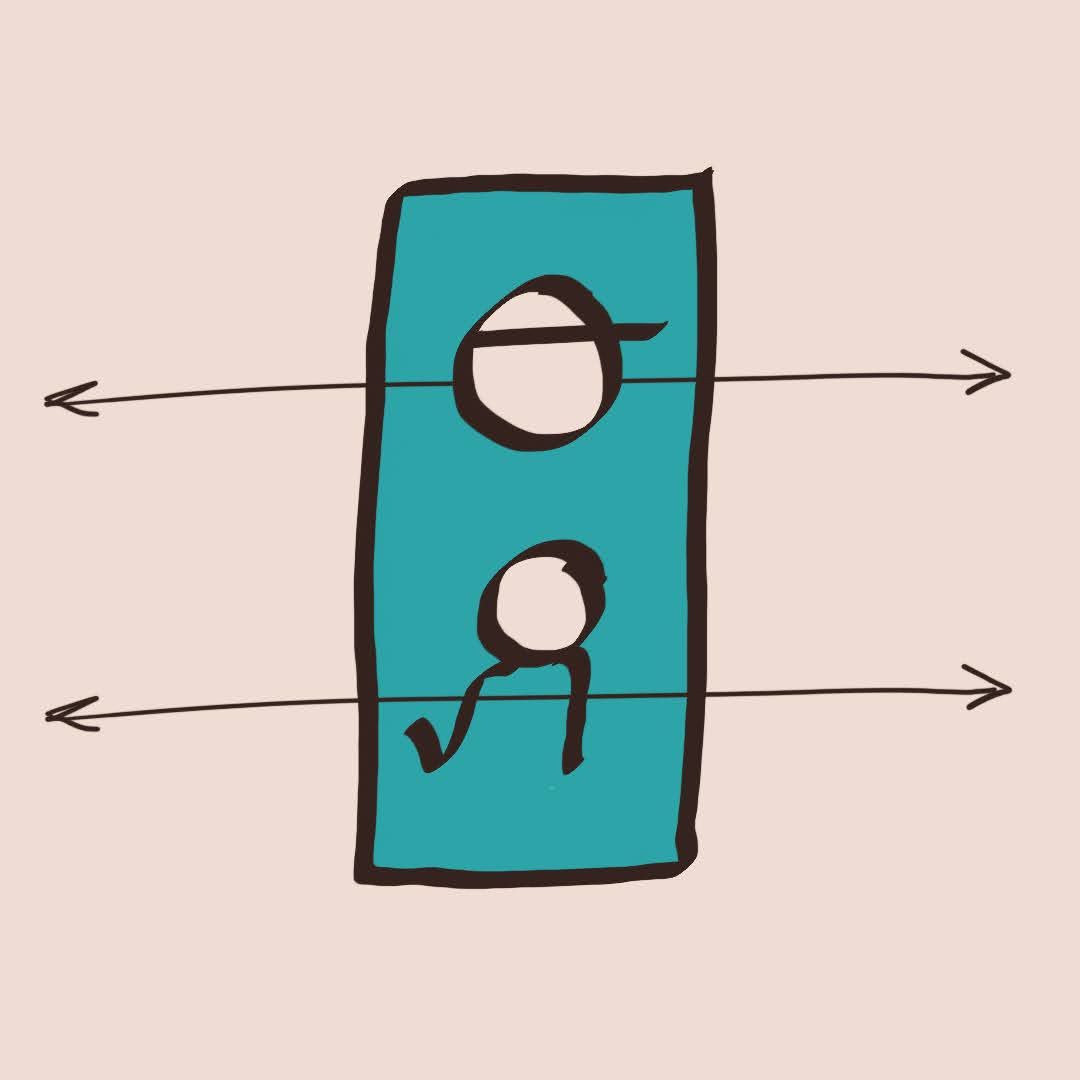
In this case, your beliefs and your actions are in line. There's no difference between what you believe to be right, and what you actually do. This state is what most Christians call “happiness.” This is the only state that allows you freedom to flourish. Because you feel no shame, you see yourself as good. You have no desire to hide, defend, or lie because you can boldly say, “I am in the right!” even if others tell you that you're wrong.
Moral people are the heroes of the novels we read in school, or stories we teach kids, or inspiring movies. Think of Atticus Finch, the lawyer who fought for what's right against all opposition. Forrest Gump, who sincerely followed his mother's simple wisdom in the face of a world that rejected simplicity and truth. (Classic) superheroes protecting others despite all physical danger. The three Hebrew children in Babylon who would rather be burned to death than bow down to a god they don't believe in. Or, my personal favorite, Don Quixote who, until the day he died, held tightly to the belief that the world should be a more beautiful, abundant, simple, and adventurous place than it actually is.
Even if we don't hold the same beliefs as these people, we recognize that their actions and their beliefs were in perfect alignment. And we find them inspiring and admirable because we recognize that that's the state we want to be in. We recognize that they are happy, even when faced with the most adverse physical, mental, and social situations imaginable. As the song goes, this is the only way that our “heart will lie peaceful and calm when I'm laid to my rest.”
I'll expand on this model later. I'll talk about how a person can choose a morality, but for the time being, here's my favorite quixotic video (not quite the Don Quixote of the book, but Man of la Mancha is a great show too):
